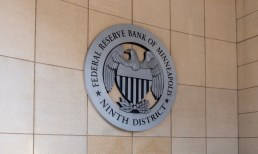While the pandemic has been mostly a continuous stream of pain points for the vast majority of people and businesses, the stay-at-home economy continues to thrive. Food delivery apps, streaming services, tele-networking programs — all of the apps that have made lockdown life bearable for the past 10 months – have now ushered in the “bring it to me” era.
And it looks like there is a new category of apps that has seen a COVID-triggered business explosion. It seems that scheduling apps are on the verge of becoming the next big thing among digital enablement tools.
In the first big attention-grabber of the week, reports emerged that beauty and wellness appointment booking app Booksy has raised $70 million in a Series C round led by Cat Rock Capital, with participation from Sprints Capital. Designed to enable customers to book and pay for beauty appointments with local salons, the app can also be leveraged by salons to sell products to their consumers.
Booksy confirms it will put the new injection of funds toward expanding to new verticals and acquiring complementary businesses. In August of 2020, Booksy merged with competitor GoPanache, adding its roughly half a million users to Booksy’s user base of more than eight million.
“GoPanache was one of our most inspiring rivals. I’m so excited that we are now one cohesive team. The merger allows us to strengthen our position in the market and to continue to push for rapid growth. With the amazing rebound we’re seeing in the appointment space after the slowdown caused by the pandemic, we think this merger is just the beginning of the consolidation of the appointment app market, and we’re excited to continue conversations with other partners in the space,” Booksy CEO Stefan Batory noted of the merger at the time.
Batory said that 2020 had been a difficult year in Booksy’s vertical, but that he is confident in its ability to rebound. “This latest round of funding enables us to reach even more salons and service providers across the U.S., and in all the regions we operate, which in turn helps them reach more customers.”
Advertisement: Scroll to Continue
And Booksy wasn’t the only player in appointment apps breaking big news this week.
Calendly, a cloud-based service that people use to create and confirm meeting times, has closed an investment of $350 million. The funding round, according to reports, includes both primary and secondary money and puts the Atlanta-based startup at a valuation of more than $3 billion.
The app is designed to make it easier for users to manage open spaces on their calendars and for other people to book appointments with them. It then books out the time in the consumer’s associated calendars, like Google or Microsoft Outlook. The app also layers in tools to enhance the scheduling experience, including the ability to pay for a booked service. Pricing ranges from free (one calendar/one user/one event) to premium ($8/month) and pro ($12/month) for more calendars, events, integrations and features.
According to the firm, about 10 million people now actively use Calendly, and the firm logged growth of over 1,000 percent in 2020. Revenue has soared as well: In 2020, Calendly made $70 million in subscription revenues, and seems confident that its aggregated revenues are headed toward $1 billion in the year ahead.
And that confidence may not be wholly misplaced. According to research in Setmore’s new whitepaper, scheduling was already a growing industry even before COVID-19 gave it a massive boost. Per the report, the market brought in roughly $205 million in 2018. The expectation is that by 2026, the industry will reach $546 million. The report also shows that direct scheduling is a major efficiency booster, associated with $3.2 billion in savings for businesses.
And the strength of the scheduling app industry is expected to carry on even as the pandemic winds down, due to the range of flexible meeting options available. The Setmore report notes, for example, that 40 percent of meetings are scheduled during non-business hours, and that the most popular appointment time is on Sundays between 4 and 8 pm.
The definition of meeting times, it seems, is changing and expanding — which means the digital tools hitting the market to manage them might just stick around even when people go back to their offices.
Read More On Mobile Apps:




